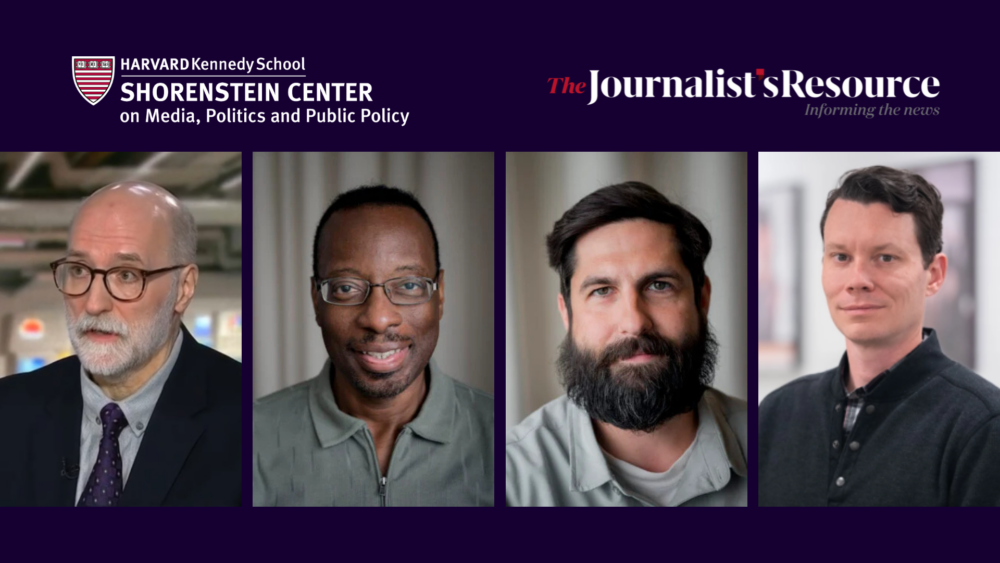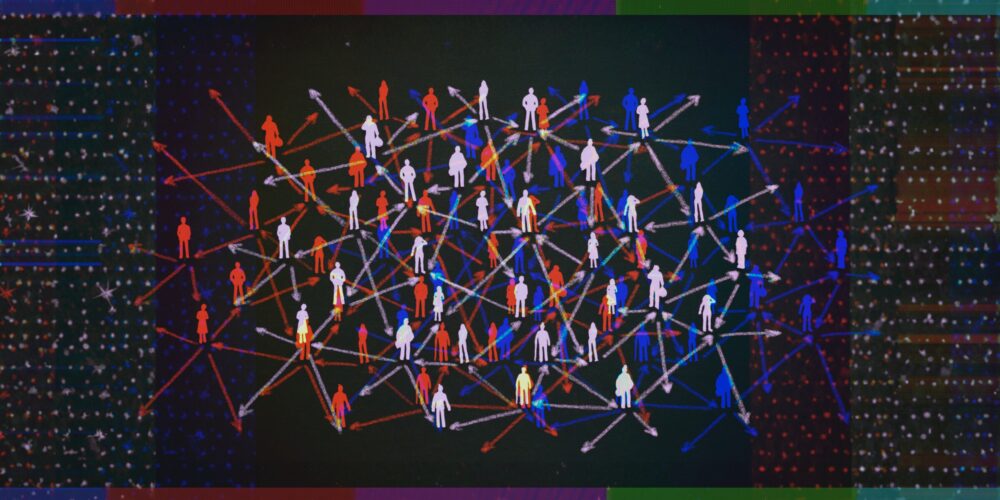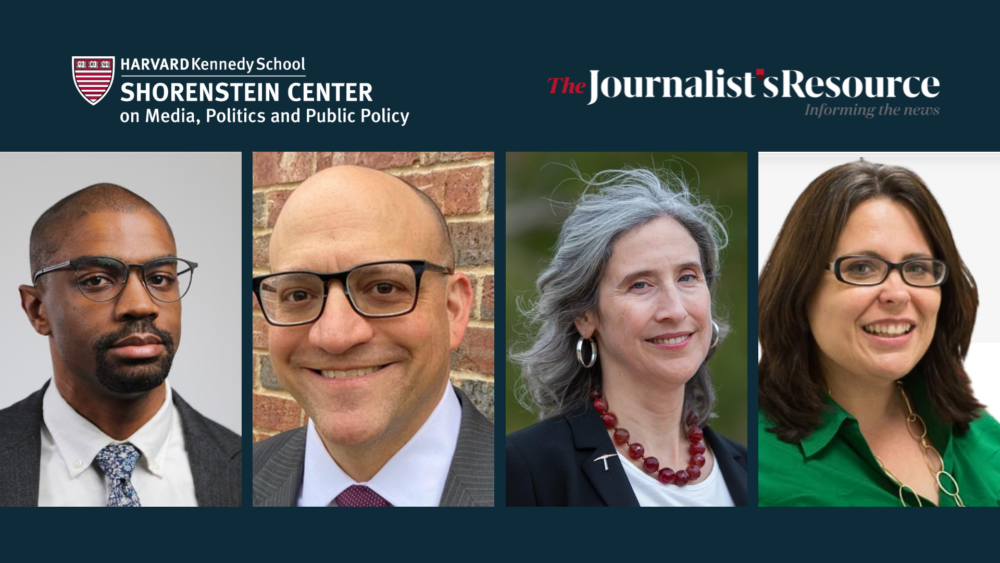
Videos
Digging into crime data to inform news coverage across beats
Reports & Papers
 Stephen Williams
Stephen WilliamsShorenstein Center Fellow, Fall 2009
Executive Editor, Asia Pacific Region, BBC
“Well, of course you’re from MI6. You’re a spy.” … “Pass the pomegranate juice, please.”
The accusation was made to the director of the BBC’s World Service, Nigel Chapman. He and I and the BBC’s senior Persian analyst, Sadegh Saba, were sitting in the headquarters of the Iranian President, Mahmud Ahmadinejad. His head of communications and senior advisor, Mehdi Kallur, didn’t beat about the bush.
The pomegranate juice — and dates — and nuts — became the segues between different parts of a symphony. A two‐and‐a‐half‐hour symphony. Can you imagine President Obama’s senior advisor giving a foreign broadcaster two and a half hours? Not in a month of Sundays. Nothing’s quite what it seems in Iran, as I was about to discover all over again…and again.
We were leaving when we saw his assistant printing out pages from the BBC’s Persian website, which the Iranian government blocks very effectively. “Yes,” came the response, “they’re briefing notes for the cabinet and the president. We trust your information, but not your motives.”
We were in Tehran to help prepare the launch of a new BBC Persian TV channel. Naturally enough Mr. Kallur said “no,” without actually ever saying “no” to our newsgathering presence in Tehran. All very Iranian.
Trust is gold dust in the news business — creating it and keeping it. How on earth, I wondered, could we even begin here? I found a country still blaming America and the West for supplying the gas to Saddam Hussein, which killed and injured their countrymen in tens of thousands in the 1980s. In the 70s the West had supported the Shah, whose regime had run one of the world’s most notorious secret police systems. Even worse, America and Britain had instigated the coup of 1953 against Iran’s first democratically elected government.
It didn’t matter whether it was the cafés of working class South Tehran, the professional salons of middle class north Tehran, or just bumping into people around the wonders of Isfahan. In my 10‐day visit to Iran ordinary people did speak to me, and their message came over loud and clear. It wasn’t just Mehdi Kallur and his merry men. “The West has meddled for decades. We just don’t trust what you’re up to.”
And yet, there were signs of hope. A sea of satellite TV dishes dotted the rooftops. And in nearly every home I went into family and friends were watching the U.S. Voice of America TV, avidly. The chest‐beating chanting of “Death to America,” I also discovered, was nonsense — a carefully choreographed clique drummed up for special occasions. Virtually every Iranian I spoke to really liked America — even loved it. They might not trust it, but they love the culture: California, coast and cars, and what they see in the movies.
On the face of it, though, as Brits, and therefore junior players in this saga, the BBC was seemingly up the Persian Gulf without a paddle. It was the end of 2007. No staff, no reporters in Tehran, and seemingly no audience.
Roll forward 18 months to the uprising of June 2009. “I went to bed in one country, and woke up in another.” The memorable words of (UK) Channel 4 News reporter, Lindsey Hillsum. Hundreds of thousands were out on the streets in Tehran and cities across Iran, disputing the “stolen election.” Joe Klein, reporting the Iranian election in Tehran for Time magazine and CNN, describes it like this: “Anarchy, total chaos, and everyone watching the BBC.”
Internet pictures, e‐mails, text messages and alike were coming into BBC Persian TV in London at the rate of between six and eight a minute at the height of the upheaval. And as for that non‐existent audience, IRIB State TV estimated between 12 and 14 million regular viewers of BBC Persian TV — a figure backed up by the country’s Institute for Strategic Studies.
So how did we go from my first insight into Iran to the image of a state in chaos with a significant proportion of its population hanging on our every picture, every word? Strangely enough, when I asked that question of Britain’s most senior career diplomat, Sir Peter Ricketts, he wasn’t able to say precisely. I then discovered that nobody (outside Iran) had actually tried to work out a coherent narrative on western TV’s impact amid the turmoil.
And that turmoil continues. I’m now at Harvard University, on sabbatical from the BBC, researching the impact of the TV channel I helped launch — and still on that voyage of discovery. What’s emerging is a clear and coherent picture of influence far greater than might have been predicted — though, with limitations.
Let me be quite clear. The BBC aspires to be impartial. But my account cannot be impartial; it is bound to be biased. I have tried to be honest, owning up to mistakes and problems. And I admit to luck in many areas. However, I would claim my perspective is important because it gives an insider’s insight into a very high‐profile media project in a country which is intoxicating and frustrating for most westerners in equal measure.
I’ll guide you first through the pre‐launch debates and fine decisions, how we overcame the inherent mistrust of the Iranian people, the hiatus of the election and the uprising and finally draw some conclusions on where we are now and the ongoing legacy and impact of BBC Persian TV. That does sound grand, but I do believe this has been a truly extraordinary venture and adventure. I would not be so presumptuous as to say this is a blueprint for all major media endeavors. But we clearly did some things right, and those lessons might be applicable elsewhere.

Videos

Commentary

Videos